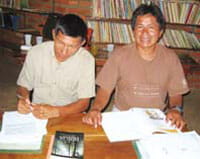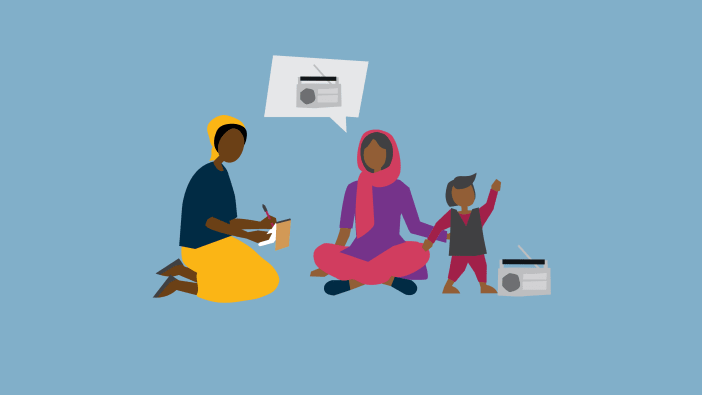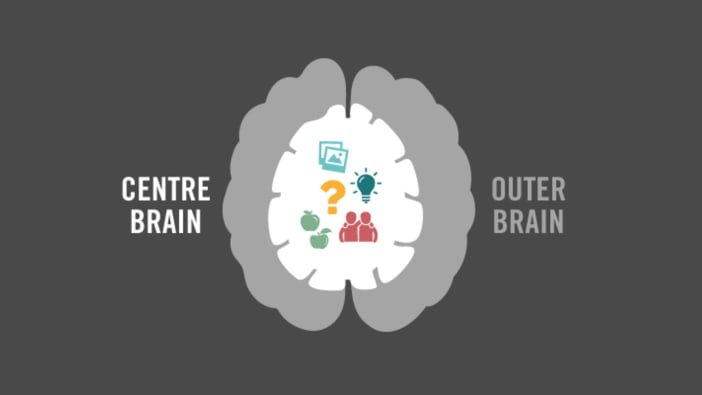The PILLARS approach values local language and culture. People are encouraged to translate and adapt the books to make them more relevant for their local situation, though Tearfund does request that the factual content is not changed. The Guides are designed to make it as easy as possible to translate the content. The design files are freely available on CD Rom, together with alternative illustrations for either Africa or Asia. FELM (the Finnish Evangelical Lutheran Mission) translated PILLARS Guides into the Wolof and Serer languages in Senegal. One of their staff commented, ‘It is hard to find appropriate, ready-made material on development to translate. Therefore the PILLARS materials are much appreciated by us.’
Training youth leaders
Siam-Care Thailand works with families affected by HIV. They needed new ideas for training their youth and community leaders. They translated Building the capacity of local groups into Thai, and distributed it to these leaders. They provided some training in using the Guide and then monitored how it was used. They found that mixing the use of the guide with games and activities gained people’s interest. Sharing opinions and group participation were very important. Using the Guides consistently with the same group of people also proved important for success.
Developing writing skills
ACTS in Burkina Faso translated two Guides and then wrote their own Guide in Mooré on HIV. It was the first time they had written something in Mooré. In Burkina talking about HIV is difficult because it means talking about sex, which is taboo there. Now they find the guide has ‘freed’ a lot of groups to talk about these issues, particularly in the churches.
They have a strong sense of ownership about ‘their’ Mooré guides. They commented that translation does not give such a strong sense of ownership as writing. ‘The writing work was very hard – but these are our ideas – we formulated them. We see that they are of the same value to the communities. We have learnt to use our own wings!’
Bible study
SIL in Sudan commented ‘We used the Bible studies from Genesis as this is the only part of the Bible available in the Keliko language here. The women enjoyed it very, very much. Their eyes were opened very wide as they said, ‘We have already read this part several times but we have never thought about this passage in this way.’ They were really seeing the connection between the Old Testament stories and their lives.’
Literacy training
WARMYS work with women’s groups in the highlands of Peru where literacy levels are low. They have used PILLARS Guides as a way of providing literacy training. A leader or group member reads out the text (usually downloaded from the tilz website in Spanish). The women then work in small groups, reading the text again together, reading out the questions, discussing their answers and then writing them down before coming together again in a larger group to share their learning. Through this the women are gaining literacy skills as well as knowledge about hygiene, health and nutrition.
Refugees
Solomon Dibaba in Ethiopia used the PILLARS approach with the Mabban people, who are Sudanese refugees in the Ethiopian border region. Solomon realised refugees are often seen as hopeless, displaced and traumatised people with little to do but sit about and wait. He explains: ‘Our experience proved otherwise. During our first workshop we planned for 30 people but ended up with over 80. We translated Mobilising the community. Of 10,000 Mabban refugees in Sherkole camp, only ten were able to read and write, but it was amazing to see the difference these ten could make, spread out among the translation groups.’
The Mabban rejected the existing pictures in the Guide but there were six artists in the camp so they worked on new illustrations using the two colours the Mabban love – black and red. After translation the Guides were field tested. One man jumped for joy on seeing the first two pages and said, ‘We are a people, we are the Mabban!’
Many challenges lie ahead as so few Mabban are literate. They need a literacy programme in order to use the Guides. The trauma of refugee life, with little hope of returning home, means people question the point of learning. However, Solomon comments, ‘Empowering refugees is very important. They need skills and training. Using PILLARS is key for all sorts of development work.’
Mobilising the church
Pastor Soudré Albert works with Ouahigouya Apostolic church in the north of Burkina Faso. He bought the PILLARS Guide on Mobilising the church at a training workshop because he thought it looked interesting and could help to motivate his church. He divided the church into groups of ten people that meet three times a week for 30–40 minutes each time. Each group has its own leader and goes at its own pace. ‘Over time we have seen the fruit of these Guides in the church. To come across these Guides has been a blessing for the church. It has really given the members of the church a new vision – understanding that as Christians we can change the world in which we live. People have come from other churches to join the discussion groups. Mobilising the church is a document that has really changed me and my church in a very concrete way.’
Isabel Carter developed the PILLARS approach based on doctoral research. She has helped facilitate numerous workshops to help organisations produce Guides in their own languages and has written 11 PILLARS Guides.
For a full list of the Guides available and details on how to order, see Resources, page 15. Isabel Carter PO Box 200 Bridgnorth Shropshire WV16 4WQ UK Email: [email protected] Website: www.tearfund.org/tilz
Tips for discussion leaders
Read through the whole Guide and become familiar with the content. Consider what people may want to know more about. Recognise your own attitudes and beliefs about the subject and try to avoid imposing these on others.
Introduce the particular topic – relate it to recent events. Use role-play if appropriate.
Explain new words and concepts. This is particularly important when literacy levels are low. People are usually too embarrassed to ask if they do not understand difficult words.
Agree on how the group will work together. Enjoyable meetings, where people are relaxed and can laugh together, tend to result in more worthwhile and productive groups.
Read through the text together. If there is more than one copy available, those who are literate can help others to follow the text.
Work through the discussion questions Don’t be afraid of silence as people may need time to think. Remember that there is rarely just one correct viewpoint; so encourage discussion of different viewpoints. Encourage everyone to contribute. Don’t criticise responses that you feel are wrong – draw out more information and ideas.
Don’t be afraid to say you do not know the answer to a difficult question. Instead say you will respond to the group later when you have more information.
Explore and develop the group’s response to the ideas presented.
Document the learning. Make simple notes in a notebook to draw together the learning and any decisions made before closing the meeting. Note down plans for any action. Over time these may prove a really helpful record.
Draw the discussion to a positive close. Try to summarise and feed back the main points raised during the discussion.
Using role-play in communication
Role-play can be used in all kinds of ways: to highlight problems and attitudes, to share common thinking and frustrations, to bring out likely tensions or to show possible solutions. Role-play makes it easier for people to talk about sensitive topics because they are speaking as if they were another character, not as themselves. Two or three people can usually provide a good role-play with just 10–20 minutes of preparation, if they have clear guidelines. Trying out role-play can also help to bring a group together. Role-play is a really useful way of communicating because:
- it attracts people’s attention
- role-plays are usually fun and encourage people to relax and be more open to new learning
- it can raise sensitive issues and explore them in a non-threatening way
- it helps people to remember short but powerful messages.
Future possibilities
- Why do groups provide a good way to learn and to take action?
- Could you integrate the PILLARS approach into your development activities?
- Can you identify any groups in your area that might be interested in using PILLARS Guides?
- Can you identify community members who would be able to facilitate discussions using the Guides?
- Would training in facilitation skills help people to use the PILLARS Guides?
- What subjects would be of interest in your community?
SPECIAL OFFER
If you would like to try out the PILLARS approach to sharing information, we are making a special offer during 2007 only. To organisations that have not used PILLARS before, we will send, free of charge, either:
- two Guides (one of your choice – see Resources page for full list – and a facilitation skills workbook) or










